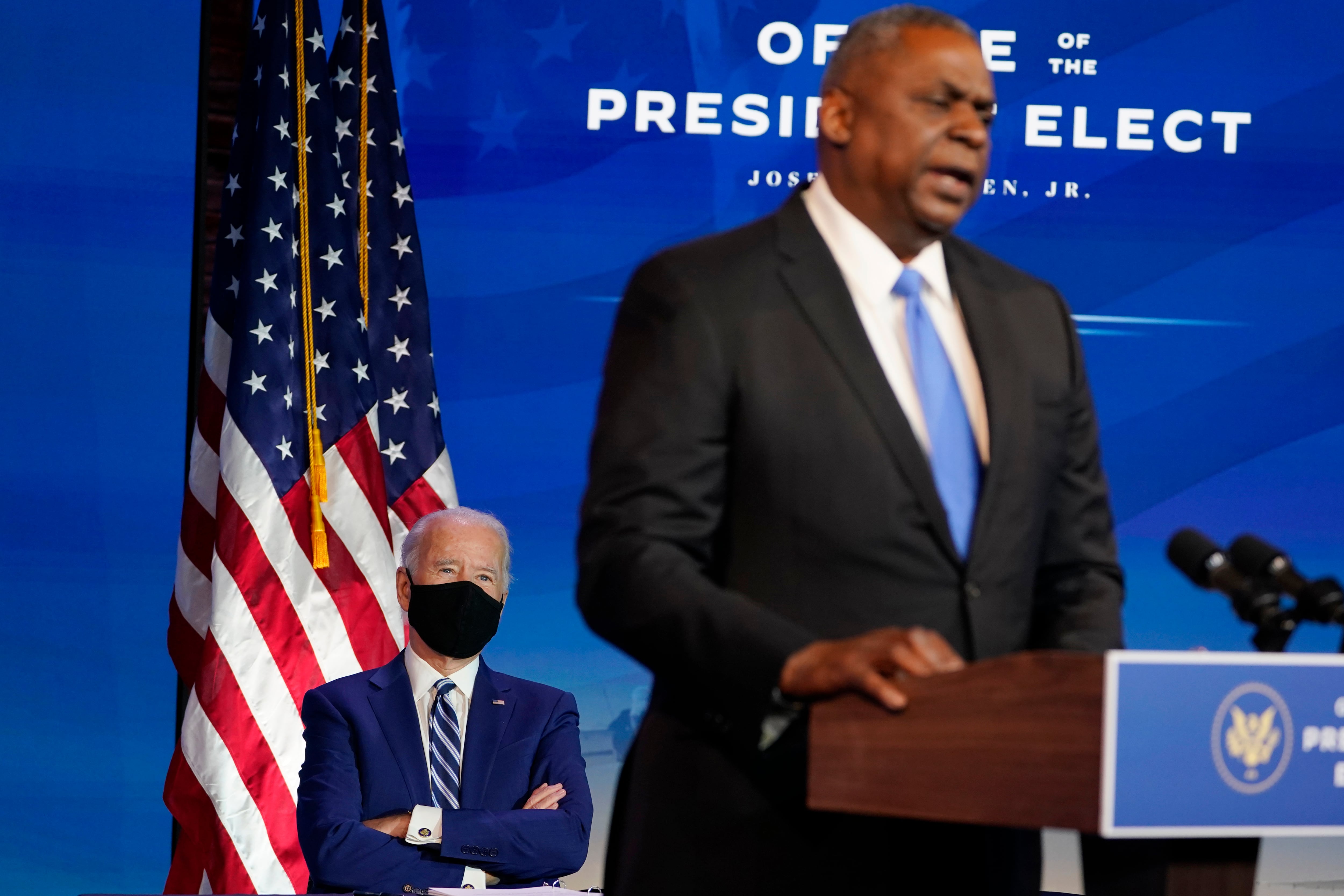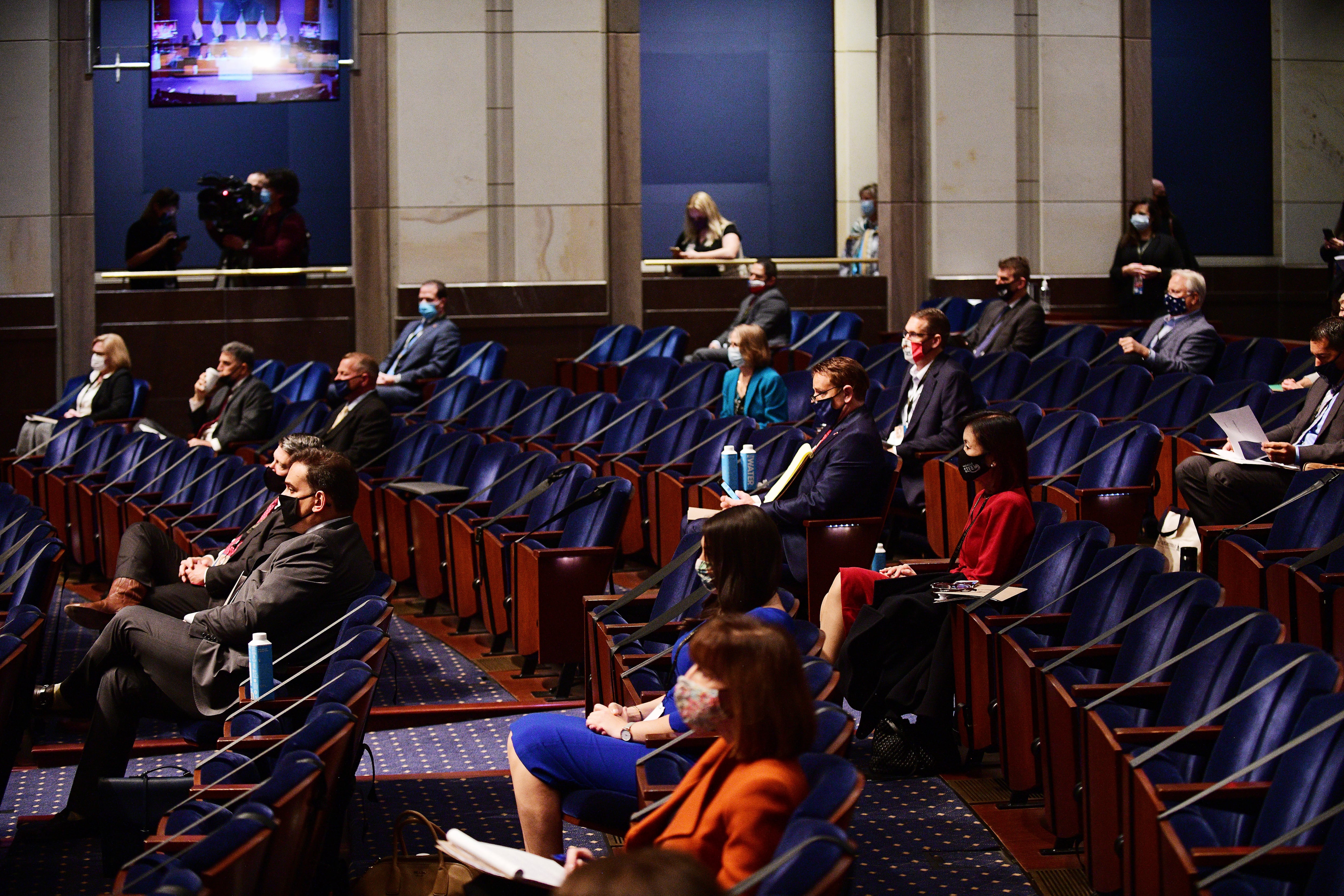After a lengthy wait, President Donald Trump on Tuesday signed into law a sweeping veterans policy measure that includes new protections for women veterans, student veterans and individuals struggling with the ongoing coronavirus pandemic.
The measure was approved by Congress in mid-December but, due to the size of the bill, wasn’t delivered to the White House until Christmas Eve. Trump signed the measure into law Monday afternoon, just a few hours before the deadline to finalize the bill.
White House officials did not offer an explanation for the delay, which had caused concern among some veterans advocates. The measure is more than 337-pages long, and larger bills typically take more time for review before final action by the president.
In a statement, Senate Veterans’ Affairs Committee Chairman Jerry Moran, R-Kan., praised the legislation as a chance to “provide support for every corner of our veteran community.”
“I applaud President Trump for signing this important legislation into law to invest in the GI Bill and provide economic opportunities for veterans,” he said. “Equally as important, this bill improves care and reduces barriers for women veterans, so they can have greater access to the benefits they have earned and expands resources for veterans hardest hit by this pandemic, whether that be financial hardship or limited access to community resources for homeless veterans.”
Trump’s signature makes the measure — named for former Senate Veterans’ Affairs Committee Chairman Johnny Isakson and former House committee Chairman Phil Roe — likely one of the last bills to become law under his term in office.
But the wide-ranging effects of it could be felt for years to come.
RELATED

Deborah Sampson Act
The omnibus measure includes the Deborah Sampson Act, legislation pending for four years which would enact a series of reforms at the Department of Veterans Affairs aimed at improving services for women veterans.
That includes a mandate for VA leaders to create “an anti-harassment and anti-sexual assault policy” and designate officials to take responsibility for any related complaints.
Advocates have pushed for those changes for years, but the issue has taken on extra importance in recent months following a department inspector general report which criticized VA leaders for working to discredit a House staffer who reported a sexual assault at the Washington, D.C., VA Medical Center in September 2019.
At least 21 members of Congress (all Democrats) have called for VA Secretary Robert Wilkie to resign in reaction to the report. Wilkie has insisted the department responds to sexual misconduct claims in an appropriate manner.
The bill also includes $20 million for retrofitting health care facilities “to make it safer and easier for women veterans to get care” and a requirement that department officials make permanent an Office of Women’s Health within the Veterans Health Administration to oversee all women’s health programs.
Department leaders would also be required to establish care standards at all medical centers to ensure that facilities are inspected and improvements are made to benefit female patients.
It also mandates that every VA facility have at least one women’s health primary care provider and authorize a new $1 million annual program for a women veterans health care residency program.
The measure would allow, for the first time, veterans filing military sexual trauma benefits claims to request a female medical provider for any related exams. And it would expand military sexual trauma counseling at VA to former members of the National Guard and reserves, who are eligible now only if they are currently serving.
RELATED

Education reforms
Several veterans education bills — including the Protect the GI Bill Act and the Pandemic Assistance for Student Veterans Act — were included in the final measure.
The latter deals with the effects of the ongoing coronavirus pandemic on student veterans. It extends emergency authorities for VA to ensure that changes in class schedules and locations related to the coronavirus outbreak do not reduce payouts for any veterans currently receiving GI Bill benefits.
It would also ensure that students will not lose benefits or eligibility if their schools close or suspend classes due to coronavirus concerns. Students who withdraw from a school for pandemic-related reasons can also retain their remaining months of GI Bill eligibility.
And the measure waives time limits for Montgomery GI Bill and Veteran Readiness and Employment benefits, to ensure they do not lapse while pandemic restrictions remain in place.
The Protect the GI Bill Act focuses on deceptive advertising practices aimed at student veterans. It would penalize schools found violating advertising rules, and would create an eligibility review for schools facing financial penalties or potential closures.
Students whose schools are closed or lose eligibility to receive federal funding could see their GI Bill benefits fully restored under the measure, in an effort to keep education officials’ mistakes from punishing student veterans.
The measure would also completely phase out the Montgomery GI Bill program by 2030. That benefit has largely been overtaken by the more generous post-9/11 GI Bill in recent years.
RELATED

Other provisions
Lawmakers included several provisions related to job retraining programs. One would triple the available funding for the VET TEC Program, aimed at helping transitioning service members gain technology skills, from $15 million annually to $45 million.
Another initiative would create new VA grants for organizations that specialize in providing transition services for troops or spouses. Those services include resume assistance, interview training, job recruitment work and other related services. That program will be coordinated with the Department of Labor.
Labor officials will also work with VA and Defense Department leaders on a comprehensive new study examining the military’s Transition Assistance Program, to find potential challenges and improvements.
The measure provides new financial assistance programs for homeless veterans, including new payouts to individuals dealing with housing support related to pandemic complications.
And it would create a new VA Advisory Committee on Tribal and Indian Affairs to advise department leaders on matters relating Native American veterans.
For surviving spouses receiving dependency indemnity compensation benefits, the new bill will lower the age that those individuals can remarry without incurring penalties from 57 to 55.
Most of the provisions in the legislation will be implemented in coming months. Veterans groups have praised the measure as provisioning important reforms for the community and closing several gaps in medical care and benefits for veterans.
Leo covers Congress, Veterans Affairs and the White House for Military Times. He has covered Washington, D.C. since 2004, focusing on military personnel and veterans policies. His work has earned numerous honors, including a 2009 Polk award, a 2010 National Headliner Award, the IAVA Leadership in Journalism award and the VFW News Media award.





